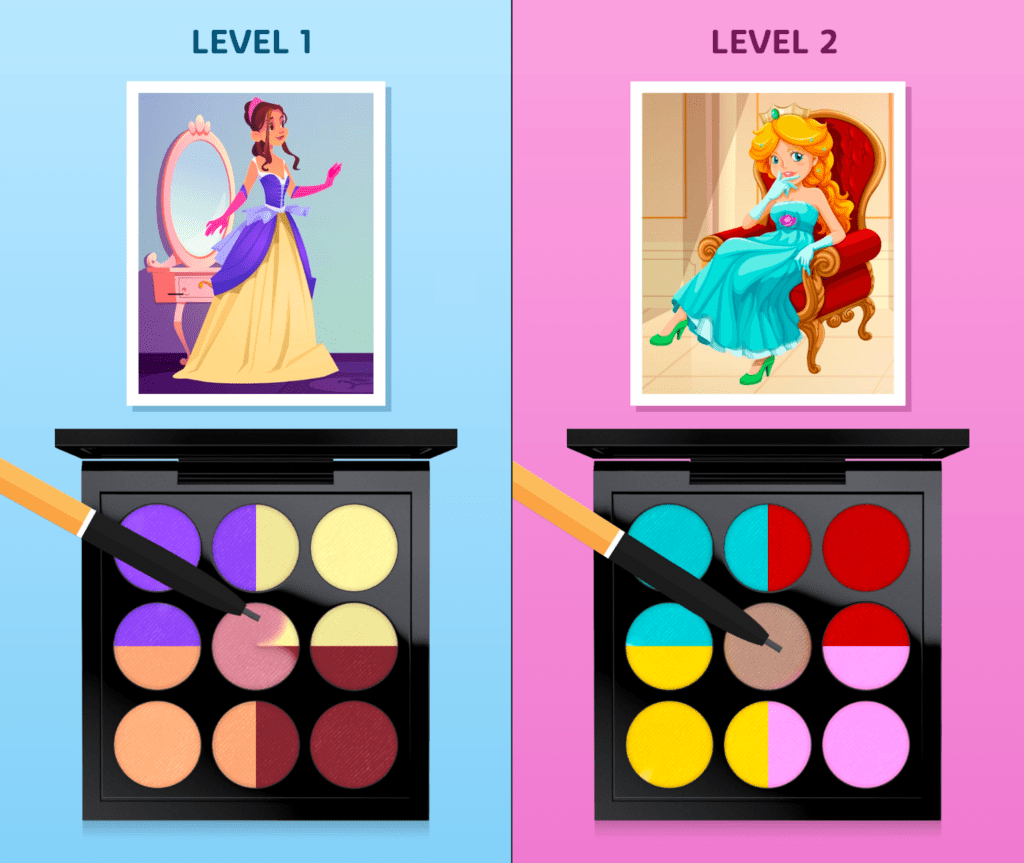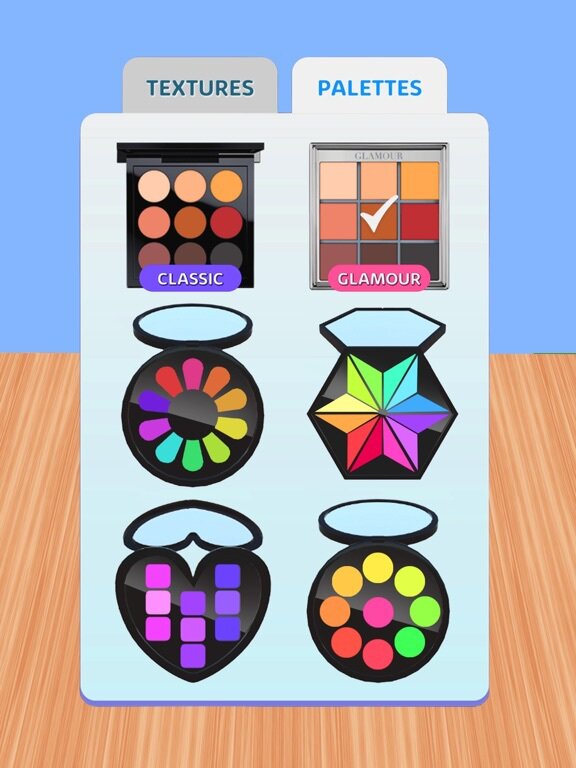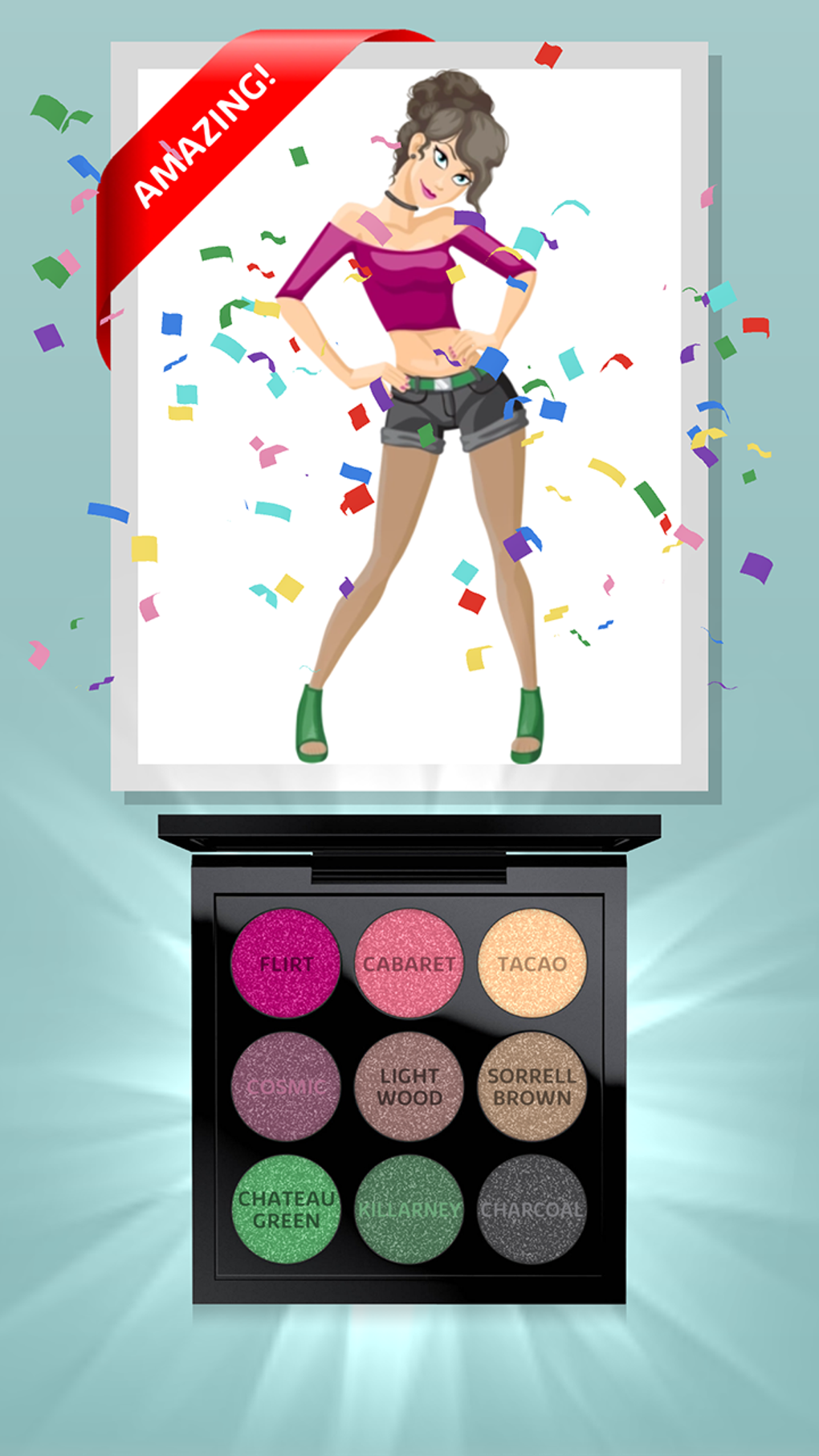The Art of Color Harmony: Exploring the Makeup Kit Color Mixing Game
Related Articles: The Art of Color Harmony: Exploring the Makeup Kit Color Mixing Game
Introduction
With great pleasure, we will explore the intriguing topic related to The Art of Color Harmony: Exploring the Makeup Kit Color Mixing Game. Let’s weave interesting information and offer fresh perspectives to the readers.
Table of Content
The Art of Color Harmony: Exploring the Makeup Kit Color Mixing Game
The world of makeup is a vibrant tapestry woven with colors, textures, and techniques. While pre-made palettes offer convenience, a deeper understanding of color theory and the art of mixing unlocks a universe of possibilities. This exploration delves into the fascinating realm of the makeup kit color mixing game, highlighting its transformative potential and enriching the makeup experience.
Understanding the Fundamentals of Color Theory
Color theory is the foundation upon which the art of makeup mixing rests. The color wheel, a visual representation of color relationships, serves as a guide for understanding color harmony and contrast. It encompasses:
- Primary Colors: Red, yellow, and blue form the base of the color wheel, unable to be created by mixing other colors.
- Secondary Colors: Created by mixing two primary colors in equal proportions (e.g., orange from red and yellow).
- Tertiary Colors: Mixing a primary color with an adjacent secondary color (e.g., red-orange).
- Complementary Colors: Colors directly opposite each other on the color wheel, offering high contrast and vibrancy.
- Analogous Colors: Colors located next to each other on the color wheel, creating harmonious and cohesive looks.
- Triadic Colors: Three colors evenly spaced on the color wheel, providing balanced and visually appealing combinations.
The Makeup Kit as a Palette of Possibilities
The makeup kit, with its array of eyeshadows, blushes, and pigments, becomes a personal color palette. This palette, when approached with understanding, allows for endless customization and creative exploration.
The Benefits of Mixing Colors
- Unique and Customized Looks: Mixing colors allows for the creation of unique shades and hues that perfectly complement individual skin tones and preferences.
- Maximizing Product Usage: Mixing colors extends the lifespan of makeup products, reducing waste and maximizing the value of the makeup kit.
- Enhanced Color Depth and Intensity: Mixing colors allows for greater control over the intensity and depth of colors, creating subtle or dramatic looks as desired.
- Creative Expression: Mixing colors fosters creativity and experimentation, encouraging exploration of new color combinations and techniques.
Key Considerations for Color Mixing
- Color Base: The base color, typically applied first, impacts the final color result. Lighter bases tend to create softer, more muted shades, while darker bases result in bolder, more vibrant hues.
- Mixing Medium: A medium, such as a brush, sponge, or palette, is essential for blending and distributing colors evenly.
- Color Ratios: The proportions of colors used in a mix determine the final shade. Experimentation is key to finding the desired balance.
- Testing and Application: Always test color mixes on a small area of skin before applying them to the face, ensuring compatibility and desired results.
Exploring Specific Techniques
1. Eyeshadow Mixing:
- Creating Depth: Blend a light shade across the eyelid, a medium shade in the crease, and a dark shade on the outer corner for a multi-dimensional effect.
- Neutralizing Tones: Mix a warm brown with a cool grey to neutralize any unwanted redness in the eyelids.
- Customizing Shimmer: Mix a matte eyeshadow with a shimmery eyeshadow to create a unique sheen.
2. Blush Mixing:
- Customizing Color: Mix a blush with a bronzer to create a warm, sun-kissed glow.
- Contouring and Bronzing: Blend a cool-toned blush with a bronzer to create a sculpted and defined look.
- Blush Intensity: Mix a blush with a neutral shade to soften its intensity or create a more subtle flush.
3. Lip Color Mixing:
- Creating a Custom Shade: Combine different lip colors to create a unique shade that perfectly complements your skin tone.
- Softening a Bold Color: Mix a bold lip color with a clear lip gloss or a neutral lip balm to create a softer, more wearable look.
- Adding Shine: Mix a lipstick with a shimmery lip gloss for a touch of sparkle.
The Power of Experimentation
The true beauty of the makeup kit color mixing game lies in its potential for experimentation. Embrace the freedom to explore different color combinations, textures, and techniques. The more you experiment, the more you discover your personal style and develop your unique artistry.
FAQs
1. What tools are necessary for color mixing?
A basic makeup brush set, a small palette, and a blending sponge are essential tools for color mixing.
2. How do I clean my makeup brushes and palettes after mixing colors?
Clean your brushes and palettes with a gentle makeup brush cleaner or soap and water after each use to prevent color contamination and ensure hygiene.
3. What if I accidentally mix colors that don’t work well together?
Don’t be afraid to experiment, but if you find a mix that doesn’t work, start again with fresh colors. You can also try adding a neutral shade to tone down a clashing color.
4. Can I mix colors from different brands?
It is generally safe to mix colors from different brands, but be aware that different brands may have different formulas and textures.
5. How do I know if I’m mixing colors correctly?
The key is to experiment and observe the results. Start with small amounts of color and gradually add more until you achieve the desired shade.
Tips for Success
- Start with small amounts of color: This prevents accidental mixing and allows for easier correction.
- Blend thoroughly: Ensure that colors are blended evenly to avoid harsh lines and color streaks.
- Test on the back of your hand: This allows you to preview the color before applying it to your face.
- Practice makes perfect: The more you experiment with color mixing, the more confident you will become.
- Don’t be afraid to make mistakes: Every mistake is an opportunity to learn and improve.
Conclusion
The makeup kit color mixing game is a rewarding journey of creativity and self-expression. By understanding color theory, mastering mixing techniques, and embracing experimentation, individuals can unlock a world of possibilities, transforming their makeup routines into an art form. It is a testament to the power of color and the endless possibilities that lie within the seemingly simple act of mixing. The journey of color exploration is an exciting one, filled with endless possibilities for personal expression and artistic fulfillment.







Closure
Thus, we hope this article has provided valuable insights into The Art of Color Harmony: Exploring the Makeup Kit Color Mixing Game. We appreciate your attention to our article. See you in our next article!